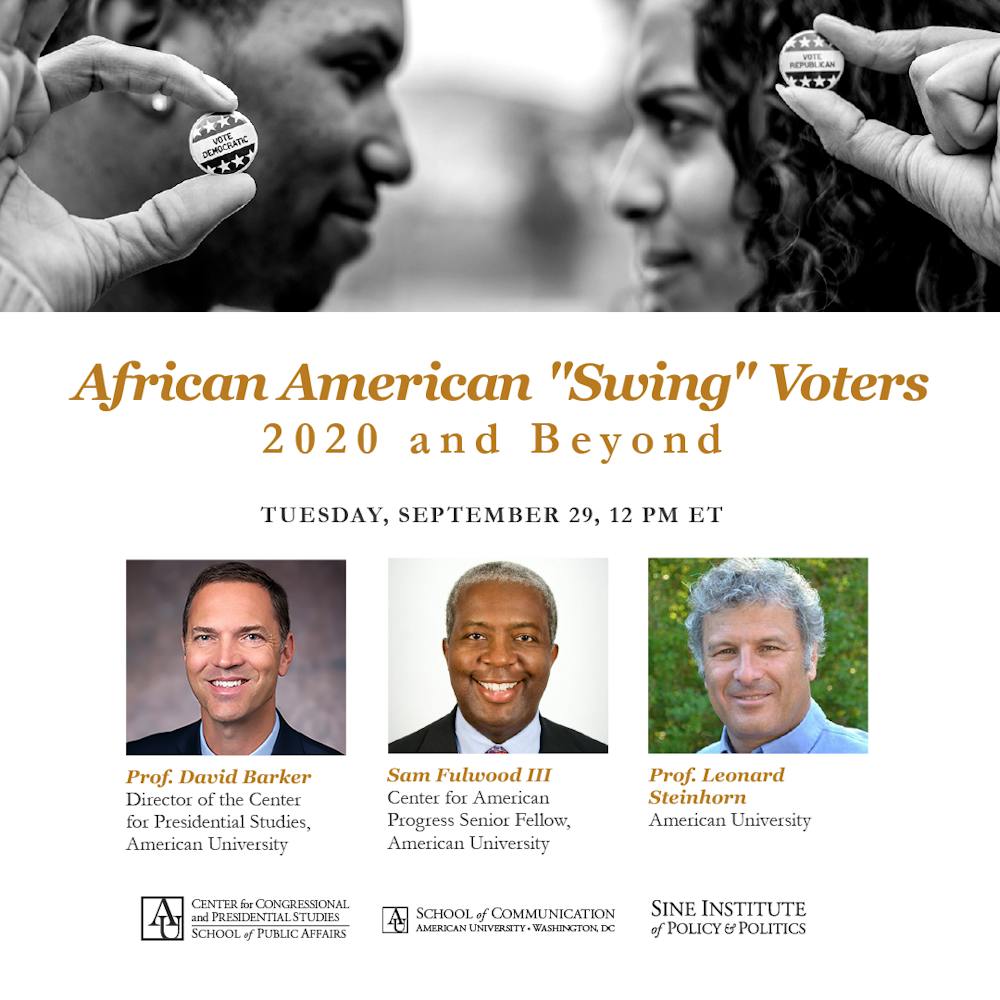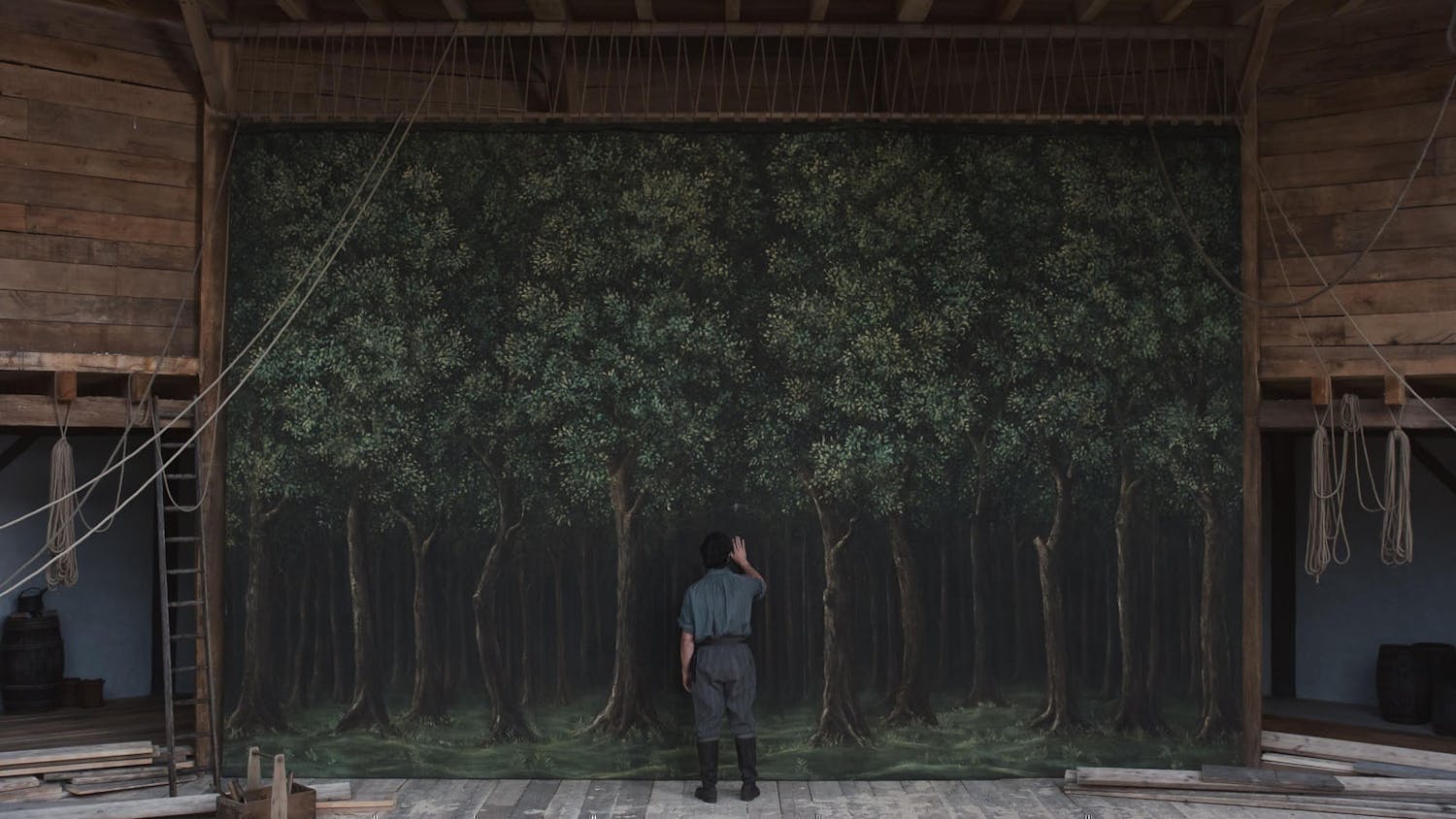A survey conducted by the American University Black Swing Voter Project found that young Black voters have less trust in the political establishment and less enthusiasm for voting than older Black voters.
Henry Fernandez, a principal at the African American Research Collaborative, said that the goal of this research was to find out more about African Americans’ political behaviors and transfer it into how campaigns think about elections this cycle and how nonprofits can better their voter outreach efforts.
“The political behavior of African Americans is quite frequently misunderstood, and that’s because African Americans have a history since the 1970s of strongly being in support of the Democratic party,” Fernandez said. “Resources haven’t moved to engage African Americans to either convince them to vote for candidates or to convince them to vote at all.”
The survey was conducted in the midst of ongoing protests that erupted in the wake of the killings of unarmed Black people by police officers and as Black Americans are disproportionately killed by the coronavirus. It compared different age groups of Black voters, with an emphasis placed on young voters under 30 years old. The project surveyed the participants on their sentiments toward the presidential candidates, motivation to vote and attitudes toward parties and political institutions.
The participants in the survey were from six swing states — Wisconsin, Michigan, Pennsylvania, North Carolina, Florida and Georgia — which Joe Biden and Donald Trump need to win in order to achieve an electoral college victory. The professors who conducted the study said that one of their key findings was that young Black voters do not trust the political establishment.
“The theory is that if you have an attachment, a strong attachment, to the establishment, you’re more likely to participate in that establishment — in government and civic life,” said Sam Fulwood III, a fellow at AU’s Center for Congressional and Presidential Studies who helped conduct the study. “If you have a weak attachment, you’re likely not to participate.”
The survey revealed that only 29 percent of voters under the age of 30, compared to an overwhelming 78 percent of voters 60 and older, said they are “definitely” motivated to vote. Fulwood said that he expected more of an inclination to want to vote, specifically against the current Trump administration. The survey still found strongly anti-Trump attitudes — nearly four in five young respondents said that Trump is racist.
AU professor and NPR News correspondent Ron Elving said that he was not surprised that young Black voters were less motivated to vote because there is residual resentment of the Democratic party’s history for “every good reason you can imagine.” He said that if he were trying to organize a Biden-Harris victory, he would be concerned about the overall lack of enthusiasm.
One organization that was not lacking enthusiasm from young Black voters is Black Lives Matter. According to the study, Black voters under the age of 30 believe that BLM would be the most effective in addressing issues of police brutality, ranking above elected officials and other leaders and activists.
AU professor and CBS Radio News political analyst Leonard Steinhorn, who co-conducted the study, said that he was not surprised by this revelation, especially in a moment when racial injustice issues are being brought to light on a national scale.
“It is revealing because this is a key constituency and if this constituency decides to opt out or to give up on politics or to think that politics can’t address their concerns and their needs then our democracy suffers,” Steinhorn said.
Mackenzie Meadows, president of AU Black Girls Vote, said that she was not surprised that young Black voters held elected officials, particularly those who are not Black, to lower standards of trust.
“Black people tend to vote on who gives them the benefit of the doubt,” Meadows said. “Who is going to provide me a better opportunity in life, for decisions for my life and for my kids and who is going to allow my kids to have opportunities?”
Fulwood ultimately thought that despite the survey showing a lack of motivation to vote, Black people will go to the polls to vote Trump out, but not particularly to support Biden or Kamala Harris.
“I think that they will be more forgiving of Biden’s malapropisms and gaffes than they would be otherwise,” Fulwood said. “I think there are some people, however, who would like to hold out their support to force more concessions for his past stance on things like criminal justice.”
Meadows said that she is partnering up with Howard University’s new Black Girls Vote chapter to organize some virtual get out the vote events. She said that she wants to excite people who have the chance to vote in a presidential election for the first time.
The professors who conducted the study shared the sentiment that in order for young Black voters to feel as if elections will personally affect them and create change, elected officials will need to stand up for them more and not just be asked to go to the ballot box. Only 47 percent of young Black voters said Democrats were welcoming to African Americans.
“People want to be recognized and people want to be seen as part of the solution and if they do that, then they will get more involved,” Steinhorn said. “So it’s not like people are opting out because they’re sick of politics; they’re opting out because they don’t think politics is meaningful in that way.”





